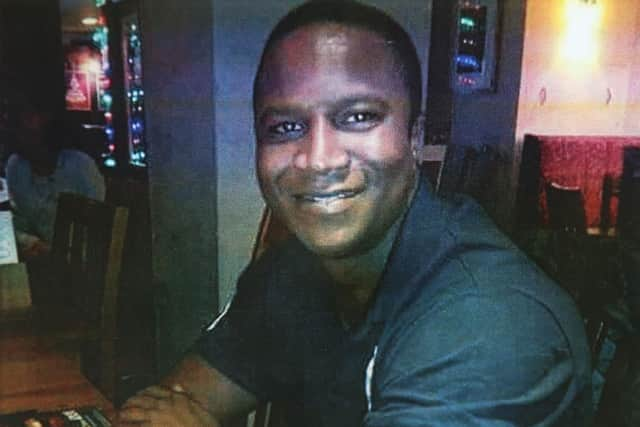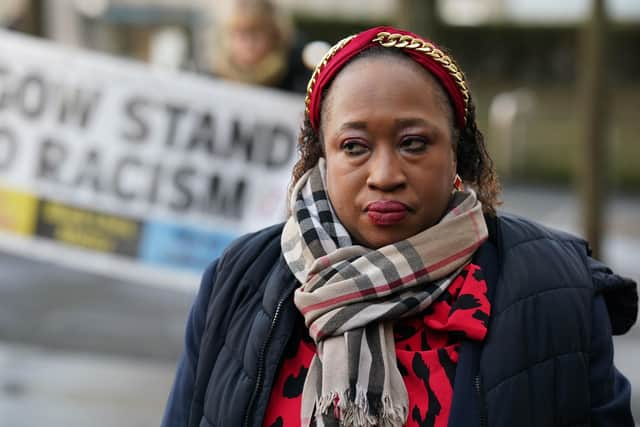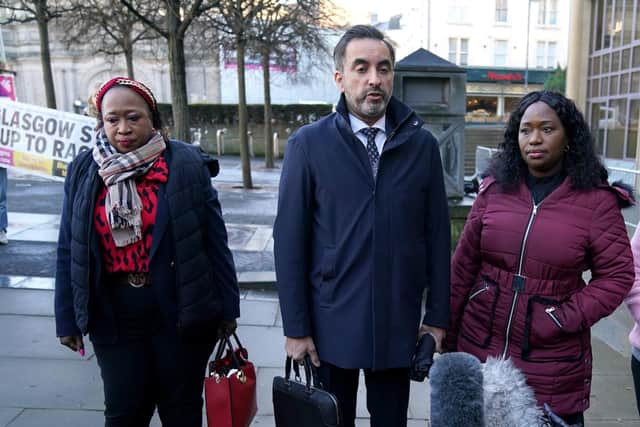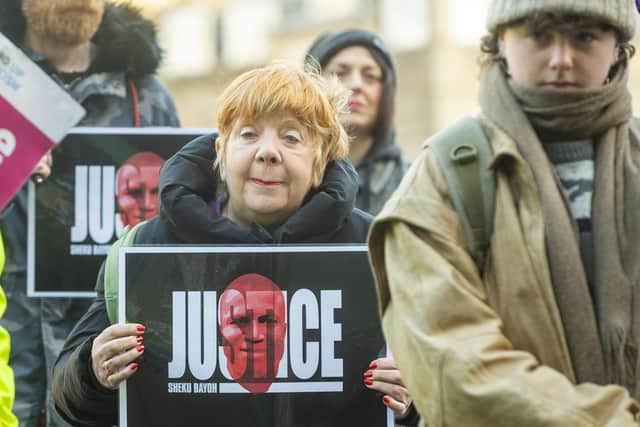Sheku Bayoh inquiry: Who was Sheku Bayoh? What happened to him and what has been said about racism?
and live on Freeview channel 276
The inquiry into the death of Sheku Bayoh starts up again on Tuesday, with his family giving evidence for the first time.
The inquiry is being held at Capital House on Festival Square in Edinburgh – here is everything you need to know.
Who was Sheku Bayoh?


Advertisement
Hide AdAdvertisement
Hide AdMr Bayoh was a 31-year-old trainee gas engineer who was born in Sierra Leone and moved to the UK when he was 12. He then moved to Scotland after living in London for five years. He died after he was restrained on the ground by six police officers in Kirkcaldy, Fife, in 2015. He left behind a partner and two young children.
On the day Mr Bayoh died, police received reports a man had been wandering the streets of the Scottish town with a kitchen knife, attacking passing vehicles and acting erratically.
Officers arrived at the scene and used incapacitant spray, which they say was deployed after Mr Bayoh ignored their commands to get down on the ground. Police then say Mr Bayoh was held face down by officers for a number of minutes before he fell unconscious and an ambulance was called for him.
He was pronounced dead by medics shortly afterwards at Kirkcaldy's Victoria Hospital, having suffered multiple injuries including head wounds and a broken rib.


Advertisement
Hide AdAdvertisement
Hide AdWhy is there an inquiry in Sheku Bayo’s death?
On November 12, 2019, the then Cabinet Secretary for Justice, Humza Yousaf MSP, announced that a public inquiry would be held into Mr Bayoh’s death. Lord Bracadale, a former High Court judge, was appointed as chair, and evidential hearings began in May 2022.
January 31 saw the start of Hearing 2A – with Hearing 1A starting last May, and Hearing 1B starting last November. The inquiry is being held at Capital House in Edinburgh.


The Sheku Bayoh inquiry website says the purpose of the Inquiry is to “examine the immediate circumstances leading to the death of Mr Bayoh, how the police dealt with the aftermath, the subsequent investigation into the death and whether race was a factor.”
Advertisement
Hide AdAdvertisement
Hide AdPreviously, the hearing has heard from experts in the use of police force as well as the officers who were present at the scene the day Mr Bayoh died. This week, the inquiry is due to hear from Detective Constable Andrew Mitchell, DC Wayne Parker, Detective Inspector Colin Robson, Alistair Lewis, Martyn Dick and Dc David Bellingham.
The £8.97 million inquiry has previously been shown video of the incident, as well as recordings of police radios and emergency service calls, and 3D modelling of how the scene would have looked in 2015.


What have Sheku Bayoh’s family said?
The family, now having their first chance to speak at the inquiry, have said they believe they “would have been treated differently if they were white.” Kadi Johnson said that she and her family felt "suspicious" after being given different versions of how her brother, Sheku Bayoh, died.
Advertisement
Hide AdAdvertisement
Hide AdShe said when two police officers came to give her the news on the afternoon of May 3, they initially said her brother was found lying on the road and died on the way to hospital, but later returned and told her he had died following a "forceful arrest".
Ms Johnson told the inquiry the family were "shocked" and upset when a third officer came to tell them her brother, a father of two, had been seen carrying a blade and refusing to obey officers' commands. Ms Johnson said the officer told them her brother had punched a police woman, other officers had got him on the ground and used spray, and he later died in hospital.
Angela Grahame KC, lead counsel to the inquiry, asked how Ms Johnson felt to be given changing information. She said: "We started to feel suspicious. We started to feel are we really getting the full facts, are these true, is it the true story we are getting, is it made up or not? How can you come and tell me you have lost a loved one and you don't know how to tell me how he died?"
Ms Grahame referred to a statement Ms Johnson gave to the inquiry in which she said "I don't know if it's because we are black people". She asked Ms Johnson, a staff nurse, why she said that and whether she thinks they would have been treated differently had they been a white family living in Kirkcaldy.
Advertisement
Hide AdAdvertisement
Hide AdThe witness replied: "That's my belief because why can they think they can just come to a family and tell us anything and expect us to go along with that? My belief is if were were white we would have been treated differently."
Additional reporting by PA
